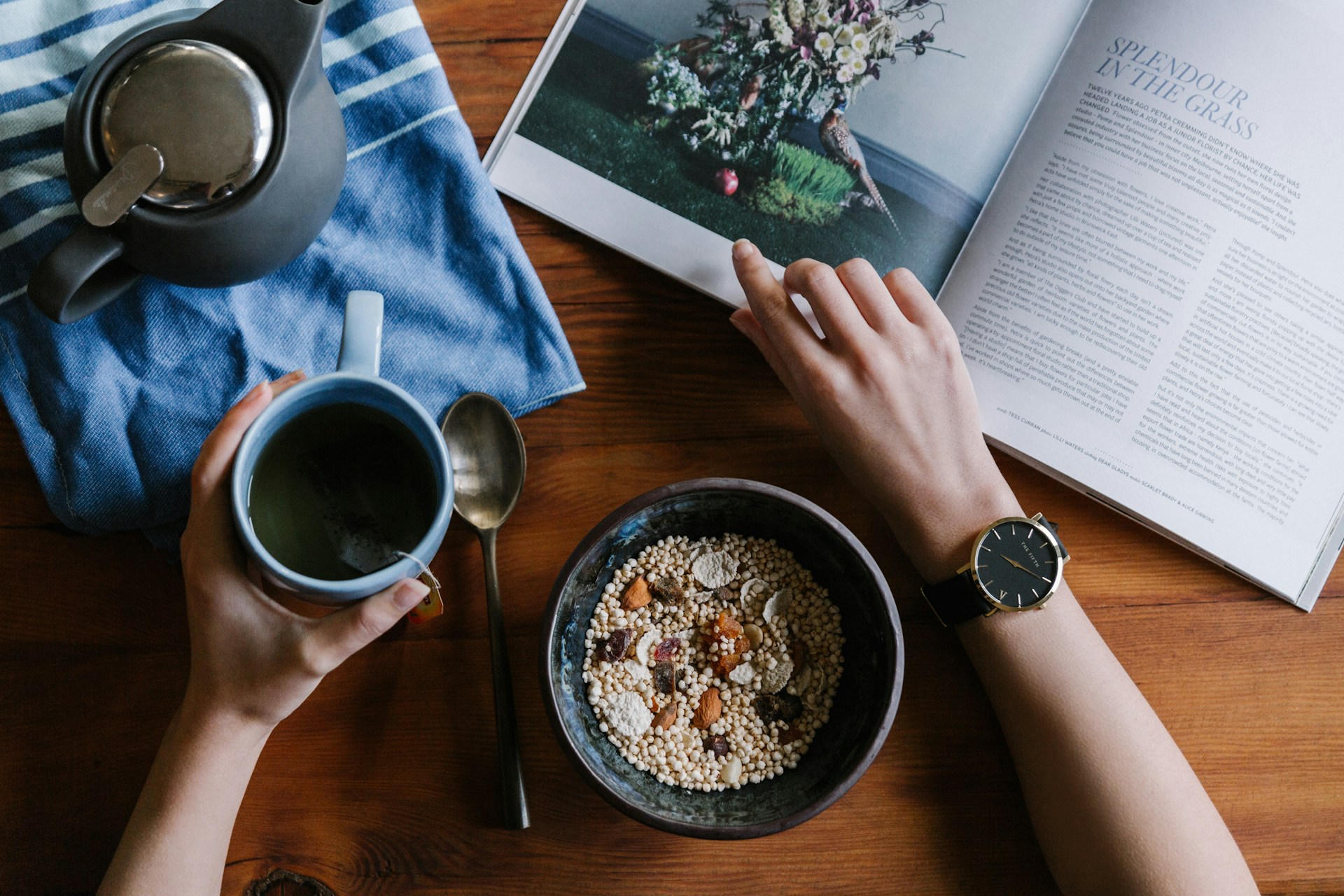How To Get Inspired!

When we don’t have time to wait around for inspiration to hit, how can we give it a helping hand?
What inspires you?
Modern society places a high value on creativity – new ideas, different perspectives, and the wholly unexpected yet marvelous. These are the skills that make us human. They are also the skills that will “futureproof” us in an increasingly automated world. Yet the very thing that makes us human can also be extremely hard to come by – inspiration, especially that initial burst of it that kicks off a new book, painting, piece of music, or business idea – is definitely one of those things that can’t just be turned on and off like a tap. But there are some ways you can enjoy more of it. While we might not fully understand the science behind inspiration, understanding what inspires you is a sure-fire way to demystify and tap into your divine ingenuity.
What is inspiration?
As humans, we love to categorize things. We find comfort in organizing objects and experiences because it allows us to simplify and thus, better understand the world around us. Inspiration is, however, one of those things we still haven’t been able to easily classify– which is perhaps why it seems so elusive at times.
The Wikipedia entry for inspiration describes it as “an unconscious burst of creativity”, and throughout history, many religions have defined it as a gift from higher deities. The Romantics considered inspiration as an entirely natural association of ideas – “one intellectual breeze … rhythm in all thought”, as Coleridge put it.
Most modern definitions of inspiration consider it a completely internal process– but one that relies heavily on external stimuli to ignite, –or spark– the creative process. The closest definition I could find to what I consider inspiration to be was that of the Macmillan dictionaries website (and not just because it’s my namesake, although I guess it’s true that there’s comfort in the familiar!):
“A sudden feeling of enthusiasm, or a new idea that helps you to do or create something.”
That’s a fine definition alright, but it still doesn’t get to the crux of the matter. Where can we find inspiration when we need it most?

Where does inspiration come from?
If we want to find something, we need to discover where it comes from – or where it hides. This is where it starts to get murky. At times, inspiration can feel like that unpredictable friend you don’t hear from for months on end, who then suddenly turns up unannounced without any explanation. And you keep meaning to ask them to explain, but you’re having such a great time with them that you forget… and before you know it, they disappear again!
The good thing is, it’s not just us that have grappled with this dilemma. Scientists, psychologists, and philosophers alike have struggled to locate the source of this magical motivational elixir. However, it’s not necessary to fully understand something before you can start practicing it (just ask my neighbors about my guitar playing!) We do know enough about inspiration to help ourselves encounter it more frequently, and, like so many of those highly valued but hard-to-define things – motivation, enthusiasm, happiness – it involves taking control, a bit of experimentation, and plenty of personalization!
We do know enough about inspiration to help ourselves encounter it more frequently, and, like so many of those highly valued but hard-to-define things, it involves taking control, a bit of experimentation, and plenty of personalization!
The in and out of inspiration
When it comes down to it, there’s the internal part of inspiration – the part that depends on you, and then there are those external triggers, the things that spark your ideas and cause you to get excited over them. That feeling you get when you have a eureka moment- that burst of energy where the ideas keep bouncing off each other and you can almost feel the neurons in your brain connecting – is due to something called neuroplasticity. In simple terms, that’s the capacity for your brain to form new connections and neural pathways, and there are things you can do to improve your brain plasticity!
So the brain is super-awesome and powerful, and, one might say, magical. But it still needs input. There are those big ah-ha moments that spark the flame of inspiration, as well as those smaller sources that stoke the already burning fire. There is certainly a motivational aspect to inspiration and a social one. In fact, a 2016 study on social identity found that the way we view others can impact on how inspired we might feel. If you feel that you can identify with someone because they are similar to you in some way, you are more likely to find them inspiring. For example, you are probably more likely to be inspired by your co-worker starting language classes than learning that George Clooney picked up Italian while holidaying at his Lake Como villa.
It’s worth stepping out of your comfort zone from time to time – you never know what doors someone else’s perspective might open in your mind!
Then there’s the most obvious, but also the most important sources of inspiration… other people’s work! That’s right – not only is imitation the sincerest form of flattery, but it’s also the quickest, oldest, and most direct route to inspiration. And in case you felt suspicious of trusting centuries of art history, revered poets, influential thinkers, and acclaimed filmmakers, scientists have studied it, too.
Practice being inspired
We’ve gone over the theory and we have as solid a definition of inspiration as we’re going to get, but for those days when you’re drawing a blank, it pays to be prepared. That’s why we’ve boiled down the inspiration basics into 10 solid tried and tested ways to get the creative juices flowing when the offerings of your mind are more blah than bountiful:

1. Do something different
Learning a new language, musical instrument or other skill can help to improve that brain plasticity we talked about earlier, while even something as simple as taking a walk in a different neighborhood or trying a new coffee shop can help you to think differently. Basically, new experiences are beneficial for brain development, and the chances of you seeing something you’ve never seen before are higher, too – thus leading to a creative spark!
2. But keep some things consistent
We’ve all heard about creative geniuses and their unconventional habits, but odd or not, having some type of routine is beneficial to great thinking. Keeping a good sleep schedule and taking regular exercise can help maintain and improve that all-important brain plasticity. Also, making sure you actually have time throughout the day to just think, is hugely important. Maybe you never feel inspired because you never have a moment to yourself – sometimes you need to tune in to those ideas that are just crying out to be heard! Whether it’s a morning or bedtime routine, or some other time, build daily quiet slots into your day.
It’s easy to forget that many of us have access to a wealth of culture in our towns and cities. Museums, galleries and theaters on our doorsteps, filled with works of art just waiting to be seen and to inspire us!
3. Read
Apart from the endless potential to be inspired by the stories and ideas of others, reading is also one of the best activities you can do to improve memory and cognitive function! And while there are benefits to any type of reading, try to give the screens a break and curl up with a good book. Deep reading, as opposed to skim reading off a smartphone, is where the magic really happens.
4. Write, draw, doodle…
If you’ve ever been struck by inspiration after jotting down nonsense poems or silly doodles, then congratulations, you’ve already mastered this inspiration technique! Freewriting is a bona fide writing technique that disregards traditional conventions and grammar rules and allows ideas to flow freely. In a similar way, doodling has been linked to numerous positive “thinking” benefits. Some might like to practice freewriting and freedrawing as a precursor to another task, while others may enjoy keeping a diary or sketchbook that they can look back on later when searching for inspiration.
5. Collaborate
The favorite answer when I asked some of the Freedom team what inspired them? Other people! Whether your teammates inspire you to come up with great ideas, or you come up with your best ideas when working with people you wouldn’t normally, it pays to collaborate. Even if you think you normally work better solo, it’s worth stepping out of your comfort zone from time to time – you never know what doors someone else’s perspective might open in your mind!

6. Honor your heroes
Most of us have at least one person who inspires us to be kinder, chase our goals, dream bigger. Maybe it’s the musician who never gave up on their dream, the athlete who keeps going even when the odds are against them, or your awesome grandma! It really doesn’t matter who it is, but when you feel low or uninspired, having a hero can be incredibly helpful – even if it’s just to realize that they too, struggled!
7. Listen to music
For many creatives, music and inspiration go hand in hand – and for good reason! Not only has listening to music been linked to improved learning, memory, and cognitive function, but newer evidence suggests a direct link to creative thinking! And it’s not just listening that might inspire you – the past year has seen an explosion in playlist curation, (thanks in large part to the pandemic induced stay-at-home orders) which is an art all of its own!

8. Be a culture vulture
It’s easy to forget, especially in the last 12 or so months, that many of us have access to a wealth of culture in our towns and cities. Museums, galleries and theaters on our doorsteps, filled with works of art just waiting to be seen and to inspire us! There’s nothing quite like the inspiration you’ll feel after immersing yourself in the world and works of another, and remember –Everything is a Remix– The Ancient Greeks believed all artistic creation to be a form of imitation: so go forth and be inspired, guilt-free.
9. Spend time in nature
Let’s go back to the Ancient Greeks for just a moment (they sure were a wise bunch, after all!) and the imitation they talked of defining art. The reason they considered all art to be imitation, is that they saw it as a “re–presentation” of nature – it was impossible to truly recreate the splendor of God’s natural world. Nature, if you will, is the blueprint for all art, so it would be silly of us not to include it in this list of things to inspire you! As living beings, we are part of the natural world, so it makes sense that spending time outdoors allows minds to wander in ways that artificial environments don’t. Even if it’s just 15 minutes a day, make space for more green time!

10. Meditate
Meditation is not new, but the explosion in recent years of wellness apps and technology has brought this ancient practice and its benefits to the western world. In terms of inspiration, meditation creates an ideal environment for the formation of new ideas and ways of thinking. “When we meditate we are creating the conditions to move through life effortlessly, from one situation to the next, with a sense of freedom.” reads the Headspace webpage on creativity. And it does sound an awful lot like that idea of brain plasticity – the formation of new networks and pathways – art imitates life indeed! And the good news is that a study by Leiden University found you can enjoy the benefits of meditation’s effect on cognitive function almost immediately!
Inspiration is deeply personal, and therein lies its beauty. It means we can continually surprise ourselves with where we find it, and be surprised by others’ sources of inspiration. Taking care of your body and mind, indulging in your passions, and creating the space in your life for the inspiration to find you is the key!
Be open to inspiration
Inspiration is neither a science nor an art, but it can certainly be the starting point for explorations in both those areas! As with most of the productivity-related undefinables we often discuss here at Freedom (see also: motivation, willpower), there is no one size fits all approach. Inspiration is deeply personal – some of the things that inspire me would very likely send some people to sleep! But therein lies the beauty of inspiration – one man’s trash is another’s treasure – and that means we can continually surprise ourselves with where we find it, and be surprised by others’ sources of inspiration. It seems the key to staying inspired is taking care of your body and mind, indulging in your passions, and creating the space in your life for the inspiration to find you – because it can, and will – at any time!




